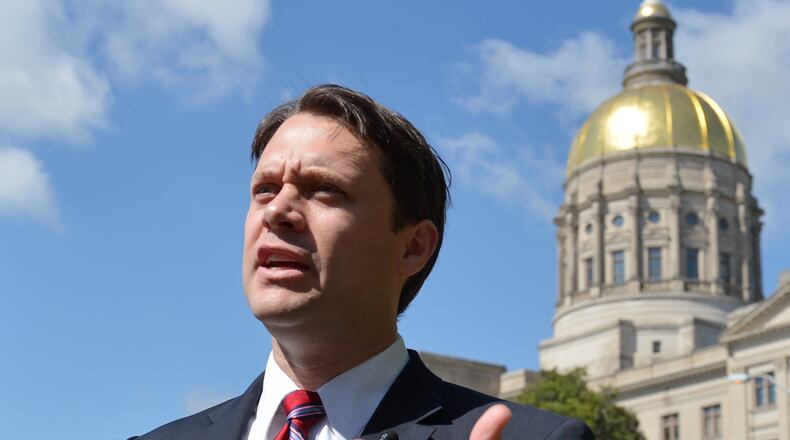State Sen. Jason Carter said tax increases to boost education funding would be off the table should he win November's gubernatorial election. Where that money would come from has been a question that's dogged his campaign to oust Gov. Nathan Deal.
The Democrat elaborated on those funding plans Thursday by calling for a review of government to expose what he expects to be a "giant amount of waste" in state spending.
"You see it throughout the government. Everyone knows that it's there," said Carter, an Atlanta state senator, after a tour of a DeKalb high school. "We have not done a true top-to-bottom review in years and years and years. And the current administration is not looking for answers into how to make the government more efficient."
The governor in 2010 pledged to move the state toward a "zero-based budget" program designed to bring more accountability to state spending, but the roll-out of that program is still in the works. Carter said it wasn't moving fast enough.
"There's a giant amount of waste out their still that we can take from non-education budgets and move them over to education, or the other types of investments that we all know we need for our economy and our future like transportation," said Carter.
Deal's campaign argues that Carter's reluctance to outline specific ways to boost school funding is a sign that he's afraid to make tough choices, and they challenge him to single out programs that should be cast aside. It also points to other Democrats, including Senate Minority Leader Steven Henson, who have complained that the budget has already been cut to the bone.
Carter and Deal have both pledged that no funding solution will involve a tax hike. Said Carter:
"I don't think right now that people trust the government enough to ask people to pay additional taxes. So no, I don't think that tax increases are on the table. I think you have to have transparency in the budgeting process. And I think working with the Republican Legislature, we can make the tough budgeting choices that will allow us to invest in education and balance the budget."
About the Author
The Latest
Featured




